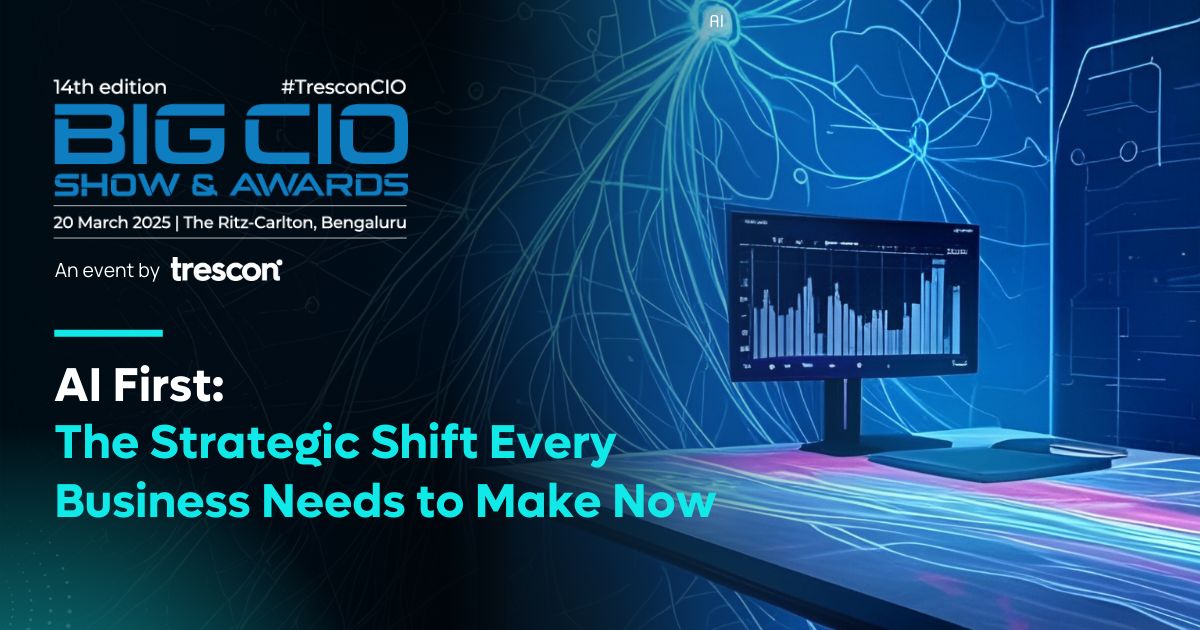
AI-First: The Strategic Shift Every Business Needs to Make Now
Over the past few years, we have heard about the growing need for digital transformation, but that era is fading. Despite organisations adopting critical tools like SAP, Salesforce, and Workday, their operations are still not able to keep up with the dynamic business landscape.
But one thing is for sure, AI is transitioning away from just being another tool in the market to leading the drive to automate workflows. This radical rethink is not just about enhancing their operations but allowing business leaders to focus on new strategies to scale their operations.
Through this blog we explore the challenges of the digital transformation movement, how AI is filling the gap and the future of the AI-first movement.
Digitalisation: The Missed Opportunity
For years, companies and organisations have been obsessed with digital transformation. While the implementation of modern-day solutions to their existing legacy systems might be a stop-gap solution but failed to change how businesses operate.
As per recent studies, over 51 per cent of the companies who have integrated these systems have not seen any major measurable difference in their operations from their digital investments.
Businesses, corporations and organisations might have transformed their operation but failed to rethink their entire business models leaving Chief Information Officers (CIOs) to tackle with disconnected systems, siloed data, and a missed opportunity to innovate.
AI-First: The Path to Real Transformation
Artificial Intelligence (AI) is not just about automating business operations but an enhancement of the existing workflow and systems. Unlike the old digital tools, AI allows business leaders and innovators to create a new paradigm for how businesses operate.
The enterprise-wide adoption of AI allows companies to connect data while helping optimise the decision-making process for business leaders while reshaping the work. Companies that have already adopted AI-powered solutions are not just reaping the benefits of doing tasks efficiently with a faster turnaround time. They are creating new business models and helping them embrace their full potential as a driver of organisational reinvention.
Breaking Down Silos: The Key to AI’s Potential
Today, the modern business ecosystem is plagued with disconnected data. A lot of companies and organisations today are operating in silos where their departments would have their own data set that is not centralised. This is not how AI integration works.
This requires a fundamental shift in how we view business operations, moving away from siloed thinking to a more integrated, collaborative approach.
To fully leverage the advantages of these solutions, CIOs and business leaders must ensure that data flows freely from each department. The smoother access will ensure a smarter and faster data-driven decision process.
AI-First Mindset: Transforming Work, Not Just Processes
For the AI-first approach to truly be successful, organisations and business leaders must ensure a cultural shift. In the evolving economic climate, business functionalities of critical operations like human resources, finance and more need to be interconnected eliminating the scope of siloed operations.
CIOs and business leaders need to collaborate to help accelerate this transformation and assist teams in rethinking their roles and pushing for department-wise collaborations that can help redevelop the business strategies to help them scale faster and more efficiently.
Conclusion
Today AI based tools are becoming more integrated in the global economic landscape. AI agents will become integral to their everyday operations helping businesses to go beyond just automation to help analyse the data and provide insights to help employees make their decisions.
This establishes the foundation for an efficient and intelligent business strategy that is agile to any new challenges and opportunities. Businesses that embrace the transformation will take the first-mover's advantage allowing them to stay ahead of their competition while achieving things that were once difficult to achieve.
Discover how the AI-first approach is redefining the global economic landscape at the 14th Edition of the Big CIO Show and Awards in Bengaluru on 20 March 2025.
<